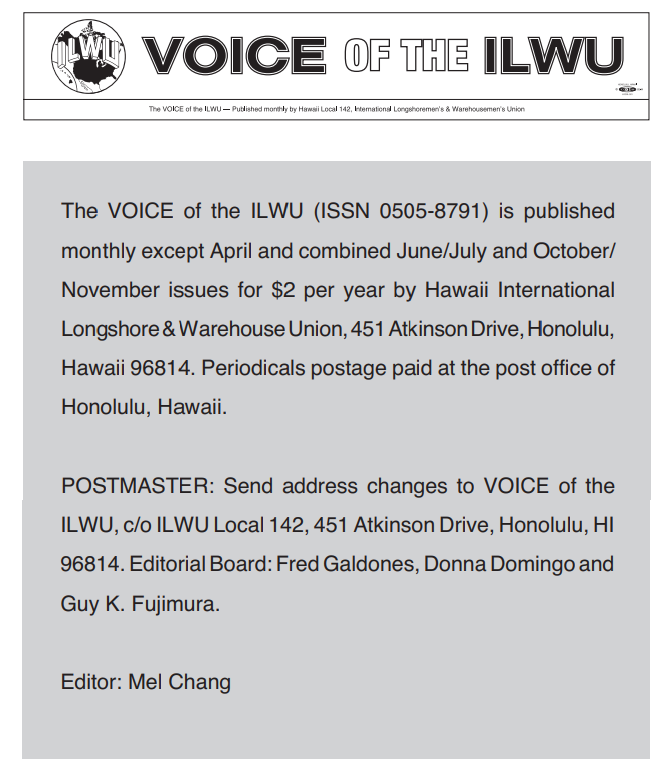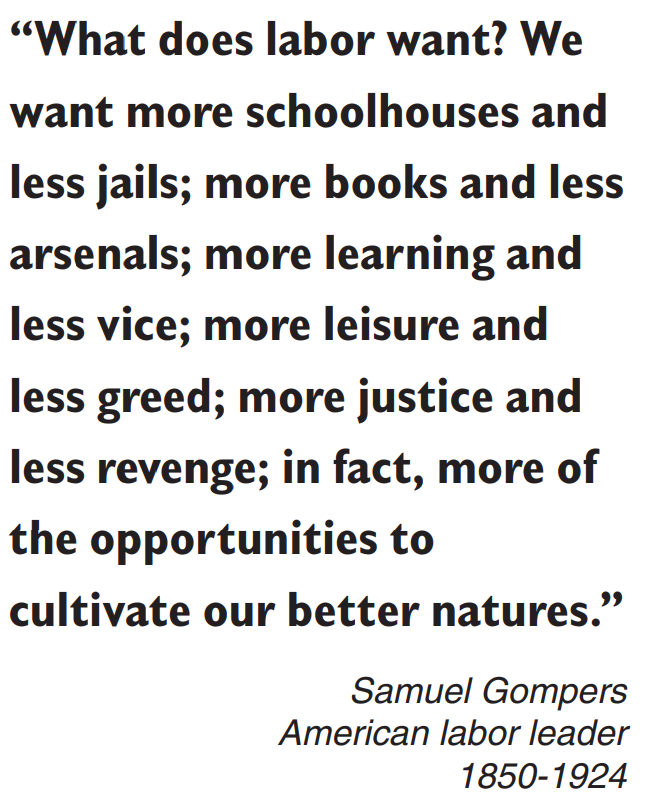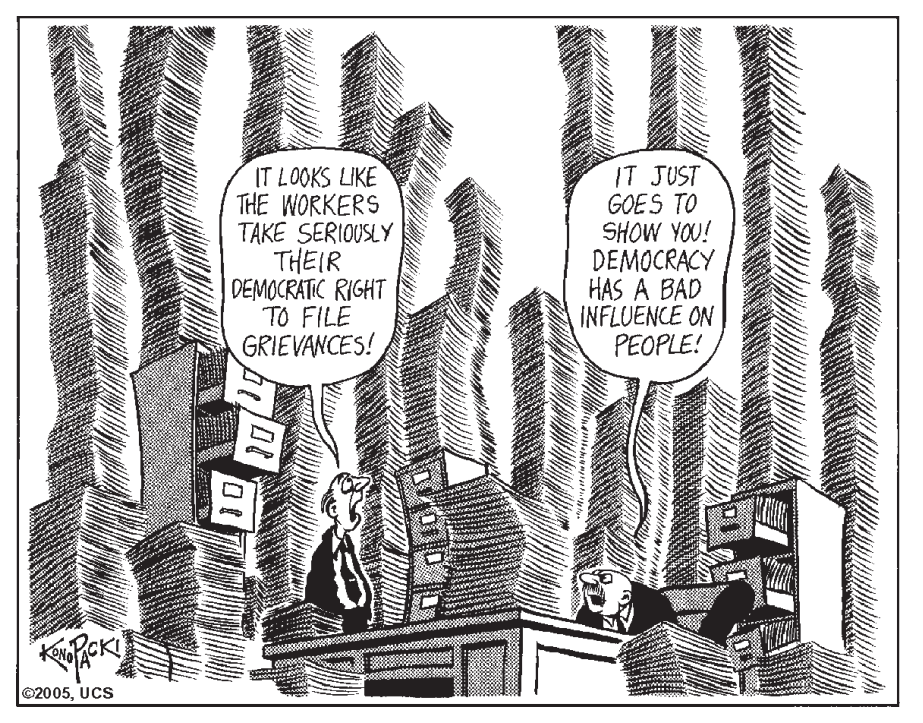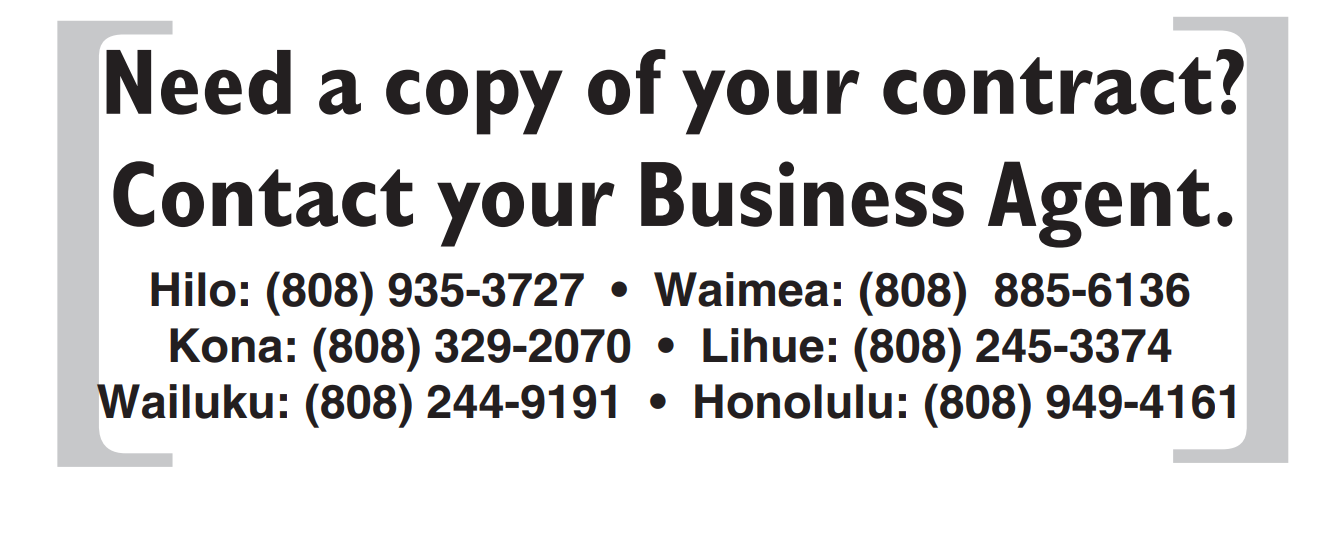Believe it or not, most workers organize into unions because of bad working conditions and poor treatment by management and not for higher wages and benefits. When workers are organized into unions, they gain the power to change their working conditions and demand respect and fair treatment from management.
With a union, workers have job security and can no longer be fired, transferred, or demoted at the whim of their bosses. In the United States, workers are hired “atwill.” This is a term which means workers are not slaves and can quit their job at their choice—or at their will. It also means an employer can fire a worker for any or no reason—or at the employer’s will. U.S. and Hawaii law only protects a worker from being fired for an illegal reason— such as discrimination by race, sex, age, religion, sexual orientation, ancestry, disability, marital status, or arrest and court record. However, unionized workers have a written contract which gives them additional protection against unjust or unfair firing or treatment on their job.
With a union, workers gain the power to meet with management on equal terms and bargain collectively to improve their wages and benefits. Union workers no longer have to go to their boss as individuals and beg for an increase in wages. With a union, workers have a voice on the job because management is required to negotiate with them on any chances in the terms and conditions of employment. With no union, management can take back benefits and change things on the job at anytime with no notice and no need to consult with workers.
Unions give workers dignity, respect, and a voice on the job. Many workers consider these to be the most valuable benefit of having a union. ◆
Get involved in your union!
Know your rights. Read and understand your rights and benefits under the union contract and the ILWU Constitution. You can get copies from your union representative. Take an active part in shaping your working life. Get to know your union stewards and get involved with union activities. The union is only as strong as its members.
Come to union meetings. You’ll learn about your rights as a working person. It’s an education that will make you a better person and your employment at your company more rewarding and enjoyable. Your participation in the union is always welcome and you will be glad you got involved. Meeting notices are posted on the union bulletin board, along with other important announcements. Make it a practice to regularly read the notices on the union bulletin board. ◆



You have rights on the job
As a member of a union, you have rights on the job. With the ILWU you have the combined strength and experience of the union on your side.
You have the right to have a union steward or business agent help you with any problem on the job. You have the right to ask for a union representative if the company calls you into a meeting which may lead to disciplinary action.
You put yourself at a disadvantage when you try to settle a problem by yourself, or when you fail to let your union know of problems you and your fellow workers have.
If you have a question or problem on the job, the first thing you should do is talk to your on-the-job union steward.
Your company is called a “unit” within the ILWU structure. Each unit has its own elected officers and union stewards, who serve as volunteers. They get no special treatment or privileges from the company or from the union, but they are ready to help you and your fellow workers. ◆

Involved ILWU members don’t just work together on contracts, grievances and union political action—they socialize and enjoy union-sponsored activities. These Oahu Division longshore members and family are enjoying Unit 4201’s Labor Day celebration. (L-r) Doreen Wong, Royipo Lopez (Hawaii Stevedores), Leonard Grace (McCabe, Hamilton & Renny), Judy Grace, Tiarae Kelly, and Brandon Kelly (MHR).

